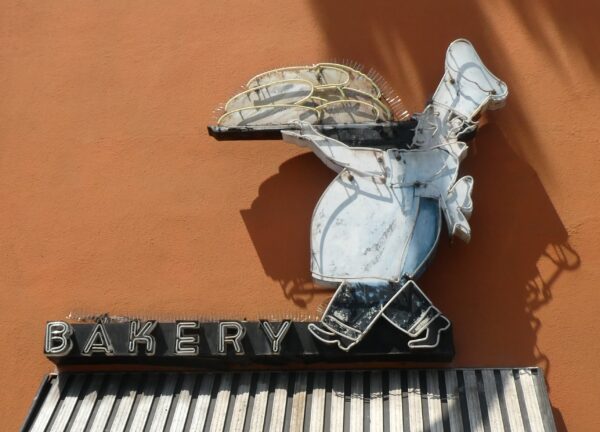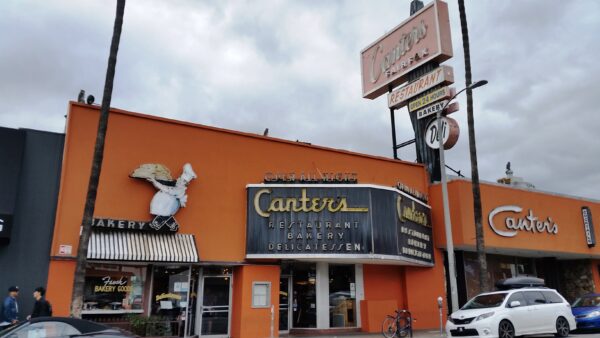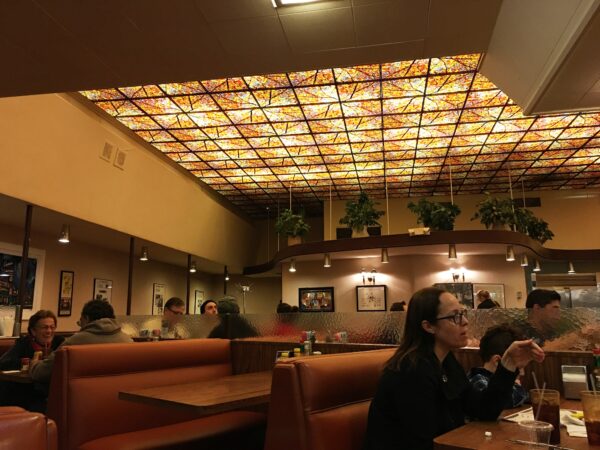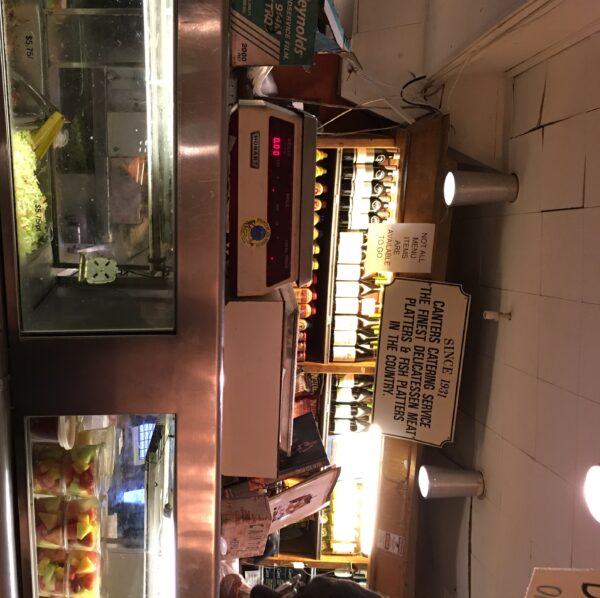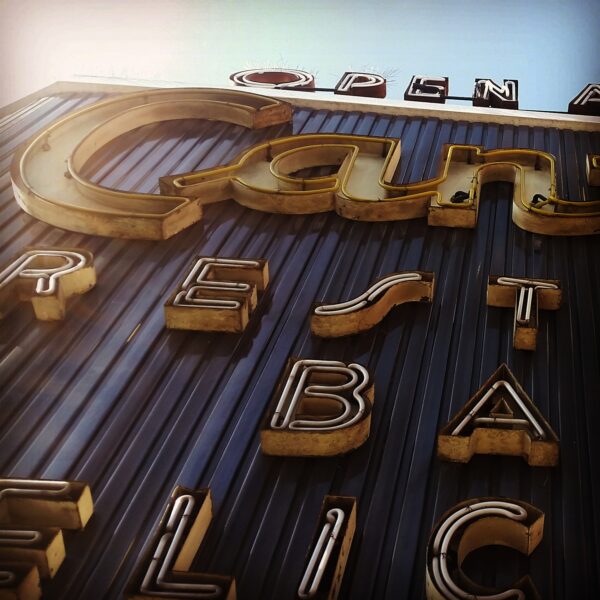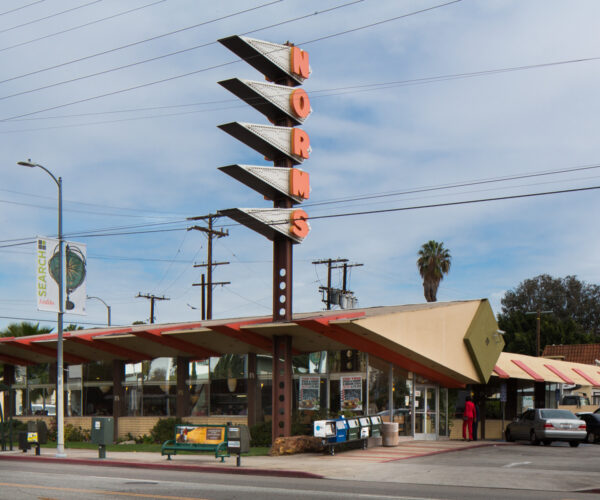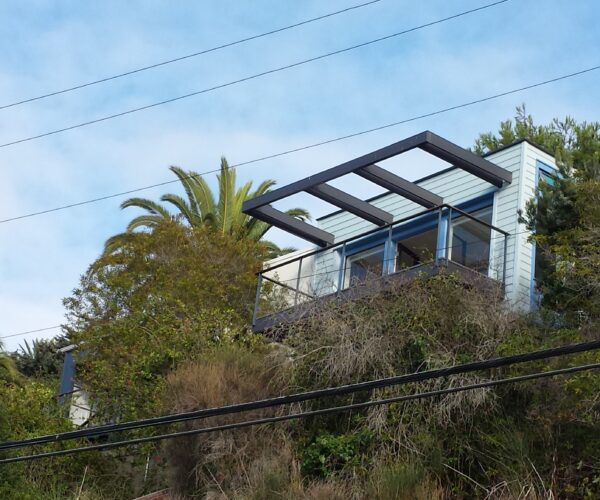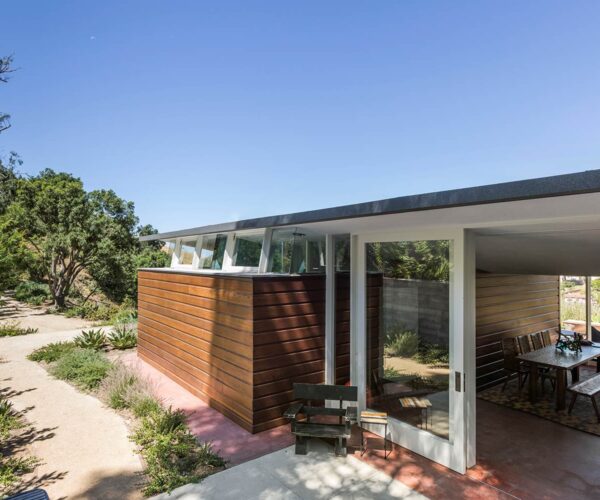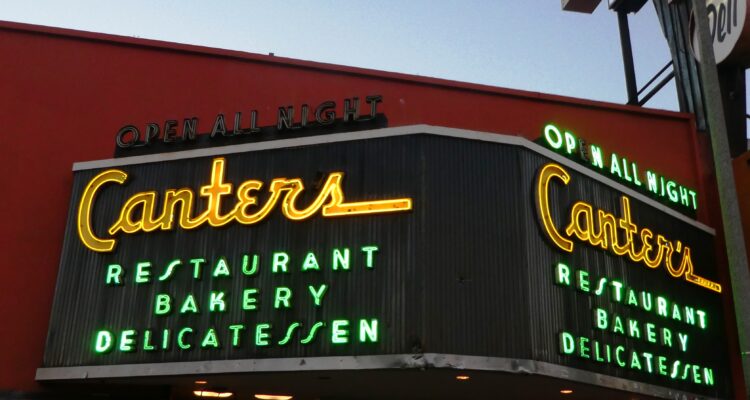
Place
Canter’s Deli
Canter's Deli is one of the oldest kosher-style delis in Los Angeles.
Place Details
Address
Get directions
Year
Designation
Property Type
Attributes
Community
Whether it's the freshly-baked bread or the famous house-made pickles, Canter's always goes the extra mile to provide the authentic, traditional Jewish deli experience, which helped grow the restaurant from a small storefront to the massive operation that it is today. Owned and operated by the third and fourth generations of the Canter family, the restaurant offers most of the same dishes that appeared on the menu when the Canter brothers opened their first Los Angeles delicatessen on Brooklyn Avenue in Boyle Heights in 1931.
As one of the oldest kosher-style delis in Los Angeles—and, by some accounts, in California—Canter's has an especially palpable relationship with Jewish commercial identity and, by proxy, with patterns of social and cultural history that helped to shape the character of twentieth-century Los Angeles. Canter’s exemplifies the significance of delicatessens within Jewish culture and their symbolic role as “third places” that provided comfort, camaraderie, and community to patrons, most of whom were of Jewish heritage.
With $500 in hand, brothers Benjamin, Joseph, and Ruben Canter came to Los Angeles in 1931 seeking opportunity and a more prosperous future and opened a kosher-style delicatessen in the multiethnic community of Boyle Heights. [1] The new restaurant was named “Canter Bros. Delicatessen” and occupied a small storefront at 2323 Brooklyn Avenue (now Cesar Chavez Boulevard). Canter Bros. was known within the community for serving generous portions of Jewish comfort food at reasonable prices. The business was so successful that in 1948 when many Jewish households were moving out of Boyle Heights and to more affluent neighborhoods on the Westside, Benjamin Canter, in partnership with his wife, daughter, and son-in-law, elected to open a second location of the delicatessen on Fairfax Avenue.[2] Known as Canter’s Fairfax, the delicatessen’s new location was located along a stretch of Fairfax that was quickly emerging as an epicenter of Jewish commerce and community life.
The Canters’ decision to tap into the Westside market was met with remarkable success. Just a few years after opening its doors, Canter’s Fairfax had outgrown its modest storefront location. In 1953, the delicatessen moved several doors down to a building at 417-419 North Fairfax Avenue, where it remains today. This building had been constructed as a Safeway market and was later converted into a neighborhood theater called the Esquire, which screened Yiddish-language films.[3] It was remodeled to accommodate the delicatessen, though a few vestiges of its previous use remain, including a marquee above the main entrance and high ceilings. Canter’s continues to serve generous portions of the authentic comfort food that earned it such widespread acclaim. When it opened, the new Canter’s Fairfax also became one of the first 24-hour restaurants in the city.[4] It has since remained open every day of the year except for the Jewish holidays of Rosh Hashanah and Yom Kippur.
In 1959, Canter’s expanded once again when it took over the adjacent building at 421-425 North Fairfax Avenue. This building had been constructed as a Woolworth’s variety store and was later converted into a competing delicatessen known as Cohen’s.[5] When it acquired the space that was previously occupied by Cohen’s, Canter’s repurposed it into an annex that included additional dining space and could better accommodate the droves of customers who were coming through its doors. In 1961, the family opened a cocktail lounge called the Kibitz Room in a portion of the annex.
As Jewish comfort foods became more widely accepted by the population at large, the Jewish delicatessens of Los Angeles attracted an increasingly diverse crowd. Deli foods and the no-frills atmosphere in which they were served were woven into the social fabric of Los Angeles and became an iconic part of local gastronomy and commercial identity. Eating a meal at Canter’s has since become something of a Los Angeles cultural tradition, fostering a sense of engagement and pride among those who share this experience.
The strong sense of identity that is evoked by Canter’s is bolstered by the fact that the restaurant appears almost exactly as it did when it moved to its current location on Fairfax Avenue in 1953. “Walking into Canter’s Deli,” describes one customer, “is like stepping into another dimension where time stands still,” as its glass bakery displays, vinyl booths, and trademark “autumn leaves” ceiling remains unchanged.[6]
In recent years, several Jewish delicatessens in Los Angeles have succumbed to shifting demographics, rising rent demands, and changing consumer appetites. This phenomenon is not unique to Los Angeles, but is rather part-and-parcel of a broader trend that has affected other cities across the nation with sizable Jewish populations such as New York, where the infamous Carnegie Deli closed in 2015 after 67 years, and Boston, where the venerable Ruben’s Kosher Delicatessen closed after 97 years. This phenomenon has rendered the kosher-style deli – and, by virtue its historical associations – an increasingly rare breed.
--------
[1] Canter’s Deli, “History,” accessed Nov. 2016.
[2] Leilah Bernstein, “The Soul of Fairfax Avenue,” Los Angeles Times, Mar. 24, 1999.
[3] Marc Wanamaker, Hollywood, 1940-2008 (Charleston: Arcadia Publishing, 2009), 112. Information about the building’s original use was gleaned from historical building permits, accessed at http://ladbsdoc.lacity.org/idispublic/.
[4] Leilah Bernstein, “The Soul of Fairfax Avenue,” Los Angeles Times, Mar. 24, 1999.
